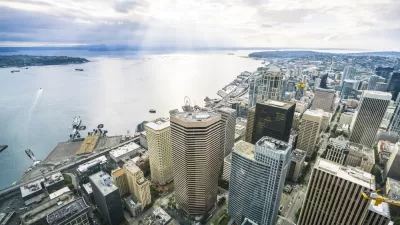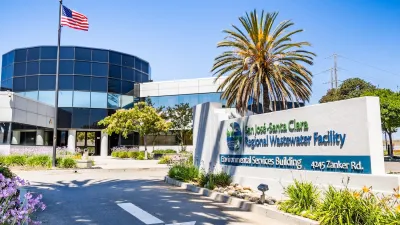The dichotomy in economic outcomes around the country won't be solved by one-off competitions like the bidding process to land Amazon's second headquarters.

After the process to site Amazon's second headquarters entered a dramatic new stage this week, the nation is left again to evaluate what the spectacle reveals of economic development strategy in the United States. According to Mark Muro and Amy Liu, "while the fall’s 'Amazon Idol' competition is garnering high ratings, the fact remains that it is a major distraction from the glaring need for the country to systematically think about a much larger development problem—the nation’s gaping regional prosperity divides."
Instead of "Amazon Idol," Muro and Liu propose a recommitment to regional growth. "At present, America possesses no strategy—let alone serious policies—for addressing the uneven allocation of growth across the nation’s 50 states and hundreds of metropolitan areas," according to Muro and Liu, who detail the landscape of economic development around the United States under the current political regime.
Muro and Liu identify a few useful existing precedents, both in theory and in practice, to "hack together some basic outlines of what policymakers, especially the federal government, might do to push back against the nation’s geographical distress."
Here's are two "watchwords" that organize their recommendations, with more details included in the source article: 1) "Make spatially balanced growth a priority" and 2) "Maintain (don’t cut) existing policies that enhance U.S. competitiveness—and support regional development."
[Editor's note: This article is from September 2017, but we share it this week due to its relevance to current events.]

Trump Administration Could Effectively End Housing Voucher Program
Federal officials are eyeing major cuts to the Section 8 program that helps millions of low-income households pay rent.

Planetizen Federal Action Tracker
A weekly monitor of how Trump’s orders and actions are impacting planners and planning in America.

Ken Jennings Launches Transit Web Series
The Jeopardy champ wants you to ride public transit.

Crime Continues to Drop on Philly, San Francisco Transit Systems
SEPTA and BART both saw significant declines in violent crime in the first quarter of 2025.

How South LA Green Spaces Power Community Health and Hope
Green spaces like South L.A. Wetlands Park are helping South Los Angeles residents promote healthy lifestyles, build community, and advocate for improvements that reflect local needs in historically underserved neighborhoods.

Sacramento Plans ‘Quick-Build’ Road Safety Projects
The city wants to accelerate small-scale safety improvements that use low-cost equipment to make an impact at dangerous intersections.
Urban Design for Planners 1: Software Tools
This six-course series explores essential urban design concepts using open source software and equips planners with the tools they need to participate fully in the urban design process.
Planning for Universal Design
Learn the tools for implementing Universal Design in planning regulations.
Heyer Gruel & Associates PA
Ada County Highway District
Institute for Housing and Urban Development Studies (IHS)
City of Grandview
Harvard GSD Executive Education
Toledo-Lucas County Plan Commissions
Salt Lake City
NYU Wagner Graduate School of Public Service





























